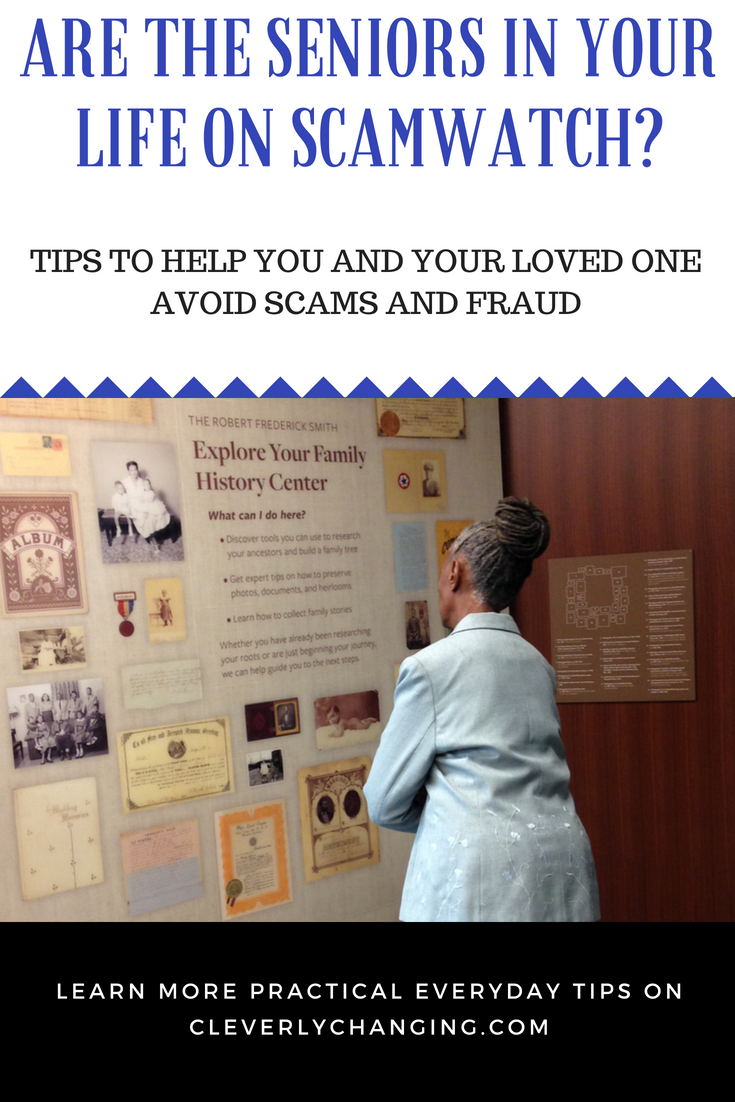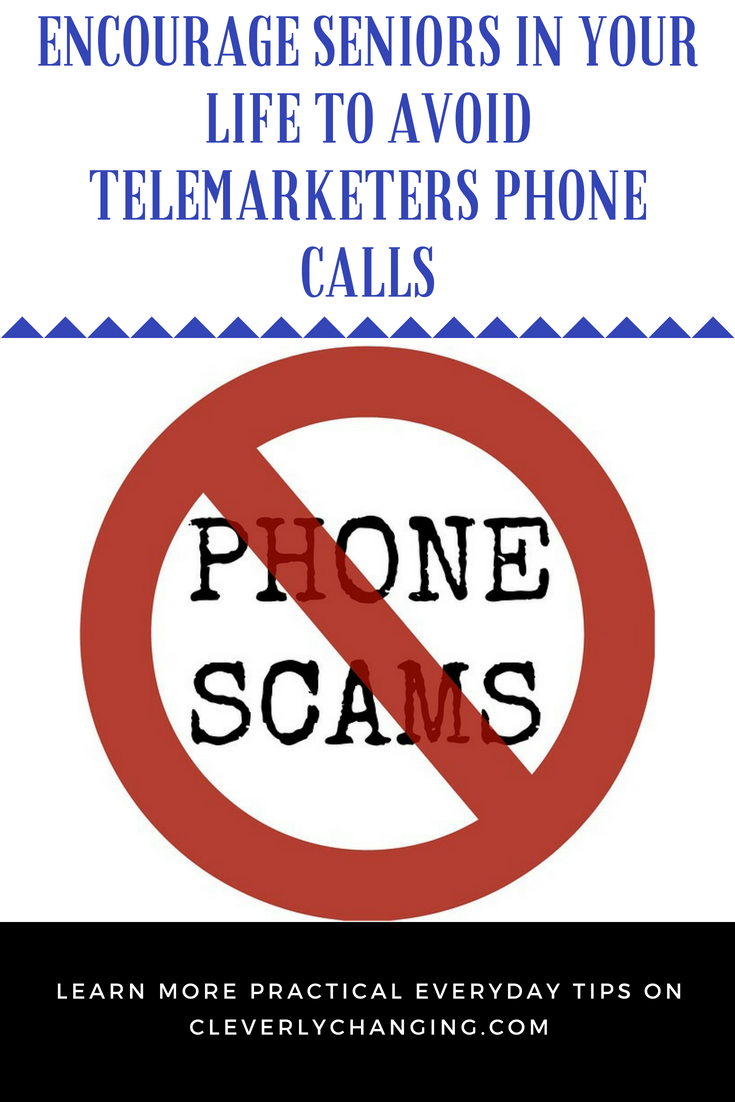I hate to admit it, but I’ve been scammed before. Yep, that college student trying to raise money to get back in school by selling magazines. I fell for the pathetic story. Honestly, I had my doubts about the transaction so I kept an eye out for my magazines. Almost 7 months later I was really grateful that I didn’t give the student cash as he insisted. Instead, I reviewed my check receipt with my bank and sure enough, the check was cashed. When I contacted the magazine subscription company they had no record of payment or my order. Beware, if strange people come to your door just don’t answer. This experience, made me stop in my tracks and realize, it’s not just seniors who need to be on scamwatch, it’s all of us.
What is Scamwatch?
Consumer Protection describes scamwatch as being actively aware in order to recognize, avoid, and take action against scams, protect personal information, and prevent identity theft both online and offline.

Are the Seniors in your Life on Scamwatch?
Unfortunately, there are many different ways that the elderly are being scammed these days. It has become so much easier for scammers to target and take advantage of the elderly through the use of technology. People get scammed every single day, but there are a number of ways that you can keep your elderly loved ones wise to the tactics and schemes that will separate them from their money. There are also a few important things to look out for.
It is extremely important to be very involved with the financial decisions of your elderly parents or loved ones. You should also try to manage their personal finances if they are unable to do so themselves. Avoid letting your elderly parent give out their personal financial information, such as credit card numbers to anyone over the phone or in person. Many scams are done over the phone and seem harmless enough but end up being a scam in the end.
Stay in the Know
Common themes include asking for money to fund a charitable organization, some sort of health miracle product, or a confirmation of sweepstakes. You should be especially leery if the “salesperson” does not offer any written information about themselves or their company. If someone calls from a government agency, they are likely to be posing as an official when they really are not. Scam artists tend to develop relationships with their victims and will be less likely to be successful if you are involved in their lives. Visit as often as you can and make time to talk with them on the phone.
Ask who they have been corresponding with and keep an eye on what they are getting in the mail. Scammers often send requests for money in the mail as well as over the phone. Advise your elderly loved ones never to make hasty decisions or decisions on the spot. No one should ever pressure them into buying anything.
Put them On the Do Not Call List
You should also put their phone number on the National Do Not Call Registry. Also, visit www.donotcall.gov which will help to reduce the phone calls received by telemarketers drastically. You are never helpless against scammers, and there is a lot that you can do to limit the exposure that your loved ones have to potential scammers. Fraud against the elderly is a very real problem that is growing in the United States, but it can be stopped. Most elderly will apply for Social Security, or apply for Social Security Disability. It is extremely difficult to survive only on Social Security if their bank account has been drained.

Encourage Seniors In Your Life to Avoid Telemarketers Phone Calls
Go over the very real and serious topic of scammers and con artists with your elderly loved ones and tell them to hang up on anyone asking for money. No one should ever call you on the phone asking for money. If they are, then they are likely to be a scammer. There are so many of them that it is impossible to stop them from calling, but you can handle it from your end and block their calls and advise your elderly loved ones how to handle the situation. Thankfully, our current phone service often alerts us that the caller may be a potential scammer.
Don’t Answer The Door For Strangers
Many times the elderly are simply lonely and want someone to talk to. This is how many scammers get their foot in the door. If you make an effort to stay in touch more, they will be less likely to talk to strangers for company. Also, be sure to tell your parents never to hire someone who comes to the door to do repairs. Instead, have them go through a reputable company that is a BBB accredited.
Regularly Check The National Consumer Protection Association
Be wary. Frankly, anyone could pose as a contractor. Then take the money and run without completing the task or tasks that need to be done. Make sure that your elderly loved ones know the “red flags” that they should be looking for. Some other top senior scams to look out for are email scams, anti-aging scams, investment schemes, and Medicaid card ID theft scams, and funeral scams. The National Consumer Protection Association is a great resource for the savvy consumer who is on scamwatch. Therefore, it is worth checking out regularly. Be sure to pass this information on to your elderly loved ones as well.



